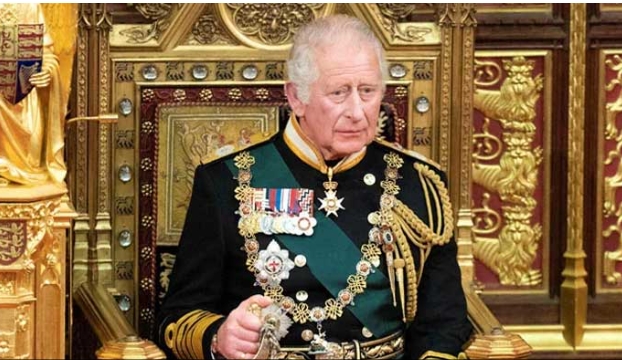BREAKING: British King Charles diagnosed with cancer
King Charles has been diagnosed with cancer, Buckingham Palace announced in a devastating statement this evening.
The 75-year-old monarch has returned to London from Sandringham to begin treatment immediately.
It is not connected with his recent surgery and is not prostate cancer, but medics spotted it when he underwent his medical procedure for an enlarged prostate.
Buckingham Palace said in a statement tonight: ‘During The King’s recent hospital procedure for benign prostate enlargement, a separate issue of concern was noted. Subsequent diagnostic tests have identified a form of cancer.
‘His Majesty has today commenced a schedule of regular treatments, during which time he has been advised by doctors to postpone public-facing duties. Throughout this period, His Majesty will continue to undertake State business and official paperwork as usual.
‘The King is grateful to his medical team for their swift intervention, which was made possible thanks to his recent hospital procedure. He remains wholly positive about his treatment and looks forward to returning to full public duty as soon as possible.
‘His Majesty has chosen to share his diagnosis to prevent speculation and in the hope it may assist public understanding for all those around the world who are affected by cancer.’
The diagnosis is also likely to be professionally devastating for Charles, who was the longest-serving heir to the throne in British history before he became King on the death of his mother, Queen Elizabeth, on September 8 2022.
Since then he has hit the ground running with three state visits overseas, hosting two incoming state visits to the UK and undertaking hundreds of public engagements each year, taking on a punishing official workload well into his 70s.
Aides have said he has relished the challenge and is hugely enjoying his royal role.
The King’s diagnosis will pose serious questions for the working of the monarchy, with fewer working members of the royal family and the Princess of Wales out of action due to what has only been described as ‘abdominal surgery’ until after Easter.
The Prince of Wales, who is heir to the throne, had cleared his diary to be by his wife’s side and keep life as normal as possible for their three children.
Kensington Palace announced earlier today, however, that he would resume public duties this week by conducting an investiture on Wednesday at Windsor Castle, followed by a gala fundraising event for the London Air Ambulance in the evening.
While Queen Elizabeth suffered episodic periods of ill-health over the years and underwent surgery on a number of occasions, including on her knee and cataracts, there was no major health crisis of this magnitude until the very last months of her historic 70-year reign.
That, however, would have a serious knock-on effect on the family life of the Prince and Princess of Wales.
They moved to Windsor 18-months ago in order to allow their children to enjoy a more carefree childhood, outside of the royal bubble, until absolutely necessary.
Prince George, ten, who is second in line to the throne, Princess Charlotte, eight, and five-year-old Prince Louis all attend a local school. Lambrook, and have settled in well at their new home, Adelaide Cottage.
William and Kate’s team are still based at Kensington Palace in London, their official residence, and travel up to Windsor for meetings.
Questions will inevitably be asked how practicable it will be for them to do so now.
The King has largely enjoyed very good health throughout his life, apart from suffering from a cripplingly bad back.
The first sign that anything was amiss with his health came on January 17 when Buckingham Palace made a surprise announcement that the King had ‘sought treatment’ for an enlarged prostate.
The palace added that His Majesty’s condition was ‘benign’ and that he would attend hospital the following week for a corrective procedure.
They said he was personally keen to share details of his diagnosis to encourage other men who may be experiencing symptoms to get themselves check.
The NHS subsequently reported an encouraging spike in people seeking more information on their website.
His Majesty, who was in Scotland at the time, travelled back down to Sandringham afterwards and then on to London the night before his surgery.
He initially resided at Clarence House, his London residence, in order to be close to his doctors, before returning to Sandringham with his wife.
Queen Camilla has continued to undertake public engagements, telling members of the l public that her husband was ‘doing fine’ and looking forwards to getting back to work.
Last Tuesday she told well-wishers he was ‘getting on’ and ‘doing his best’, adding: ‘Thank goodness!’
One in every three men over the age of 50 will have symptoms of an enlarged prostate, which include needing to visit the toilet more frequently, with more urgency, and difficulty emptying the bladder.
An enlarged prostate, known as benign prostatic hyperplasia, does not usually pose a serious threat to health, and it is not cancer.
But patients may need to have several tests for the condition to rule out the possibility they have another illness with similar symptoms, such as prostate cancer.
Surgery is usually only recommended for moderate to severe symptoms that have not responded to medicine.
